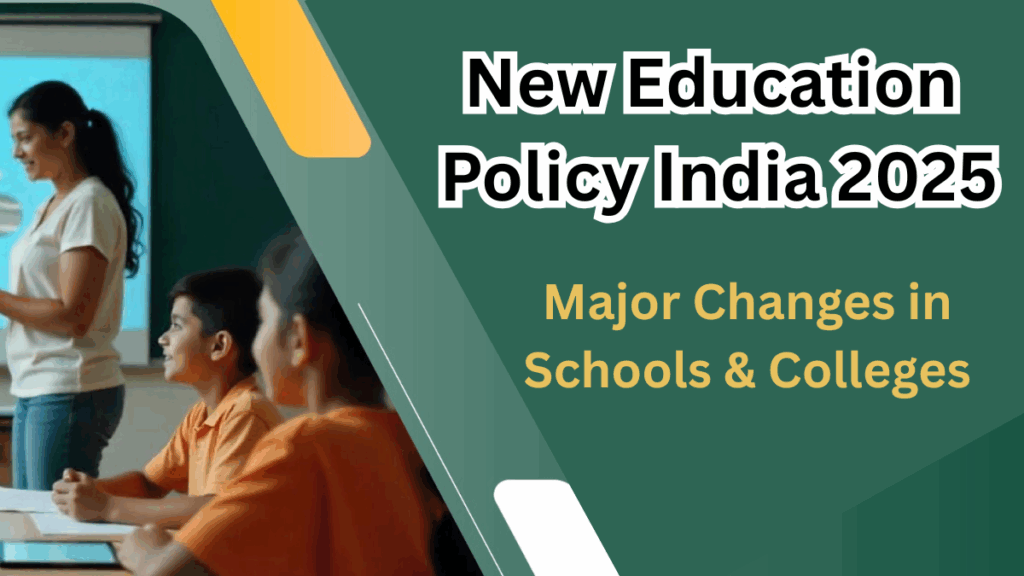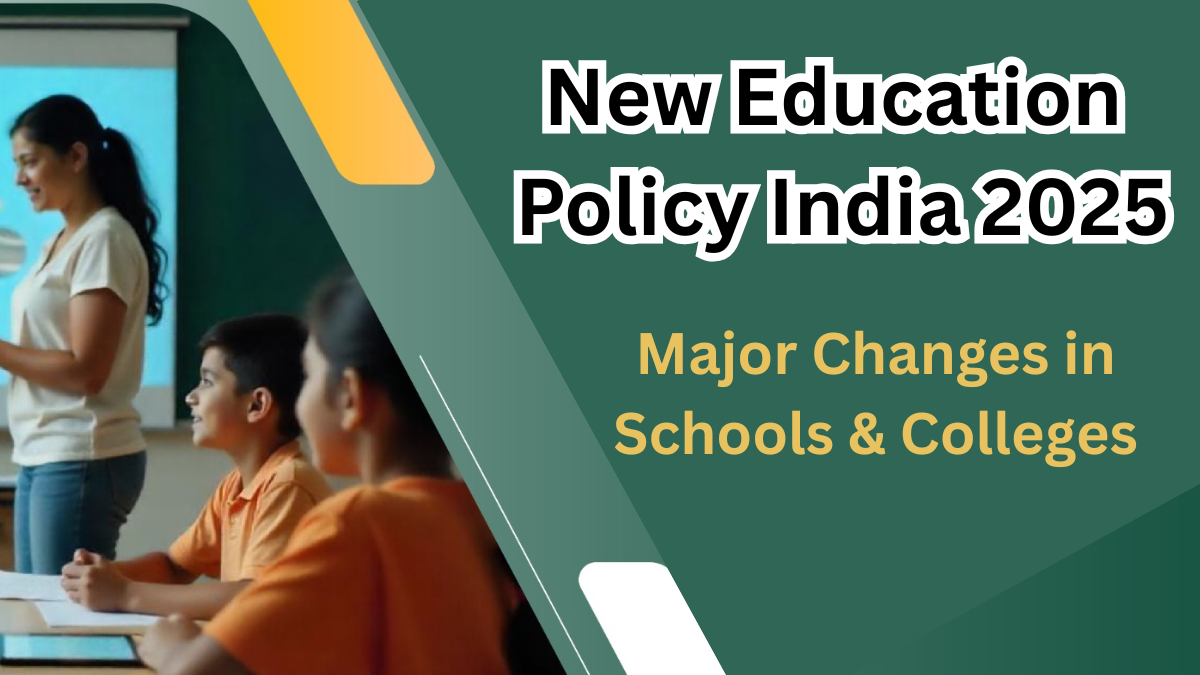The education landscape in India is undergoing a transformative shift with the New Education Policy India 2025. The focus is on holistic learning, skill development, and making education more aligned with the demands of the modern world. With NEP Implementation in full swing, schools and colleges are set to experience major structural and curricular changes.

Key Highlights of NEP Implementation in 2025
The New Education Policy India 2025 aims to revamp the traditional education system to make it more flexible, multidisciplinary, and inclusive. Here’s what students, teachers, and parents need to know:
-
Multidisciplinary Curriculum: Students can explore multiple subjects rather than being confined to a rigid stream of Science, Commerce, or Arts.
-
Focus on Skill Development: Emphasis on vocational training, coding, AI, and other 21st-century skills.
-
Early Childhood Education: Strengthened foundation for pre-primary education to ensure strong learning outcomes in later years.
-
Flexible Assessments: Continuous and holistic evaluation replacing the traditional exam-centric approach.
-
Technology Integration: Smart classrooms, AI-driven learning tools, and digital resources for personalized learning.
-
Higher Education Reforms: Colleges and universities will offer more interdisciplinary courses, research opportunities, and a credit-based system for flexibility.
How Schools Are Adapting to NEP Implementation
Schools across India are restructuring to meet the objectives of the New Education Policy India 2025:
-
Introduction of coding, AI, and life skills from early grades
-
Teacher training programs for modern pedagogical methods
-
Integration of sports, arts, and vocational courses into mainstream education
-
Flexible timetable and modular learning for different subjects
| Area of Focus | Changes in 2025 | Benefits |
|---|---|---|
| Curriculum | Multidisciplinary subjects | Holistic development & freedom of choice |
| Assessments | Continuous, project-based evaluation | Reduced exam stress, better skill assessment |
| Technology | Digital classrooms & AI tools | Personalized learning & increased engagement |
| Teacher Training | Upgraded teaching methods | More effective classroom learning |
| Vocational Skills | Coding, AI, entrepreneurship courses | Industry-ready students |
Changes in Colleges & Higher Education
With NEP Implementation, colleges and universities are moving towards flexibility and innovation:
-
Credit-Based Learning: Students can choose courses across streams, accumulate credits, and even transfer between colleges.
-
Multidisciplinary Programs: Opportunities to combine Arts with Technology, Science with Management, etc.
-
Research and Innovation Hubs: Institutions will focus more on research, incubation centers, and start-up support.
-
Assessment Reforms: More emphasis on projects, presentations, and practical applications rather than rote memorization.
Benefits of the New Education Policy India 2025
The policy is designed to create a more future-ready and inclusive education system:
-
Encourages critical thinking and problem-solving
-
Reduces stress and exam pressure
-
Promotes skill-based and experiential learning
-
Bridges the gap between academia and industry requirements
-
Fosters creativity, entrepreneurship, and research orientation
FAQs on New Education Policy India 2025
Q1: When will the NEP Implementation fully take effect in schools and colleges?
A1: NEP Implementation is being phased gradually. Many schools and universities have started adopting changes in 2024, with full integration expected by 2025-26.
Q2: Will students still have board exams under the new policy?
A2: Yes, but the approach is more flexible with continuous assessment, project-based evaluations, and only two major exams at crucial stages.
Q3: How does NEP 2025 affect vocational and skill-based education?
A3: The policy strongly promotes vocational courses from school level onwards, integrating practical skills like coding, AI, and entrepreneurship into the mainstream curriculum.
Q4: Can college students switch streams under the new policy?
A4: Yes, NEP Implementation allows for multidisciplinary learning, enabling students to take courses across different streams and accumulate credits flexibly.
Click here to learn more
